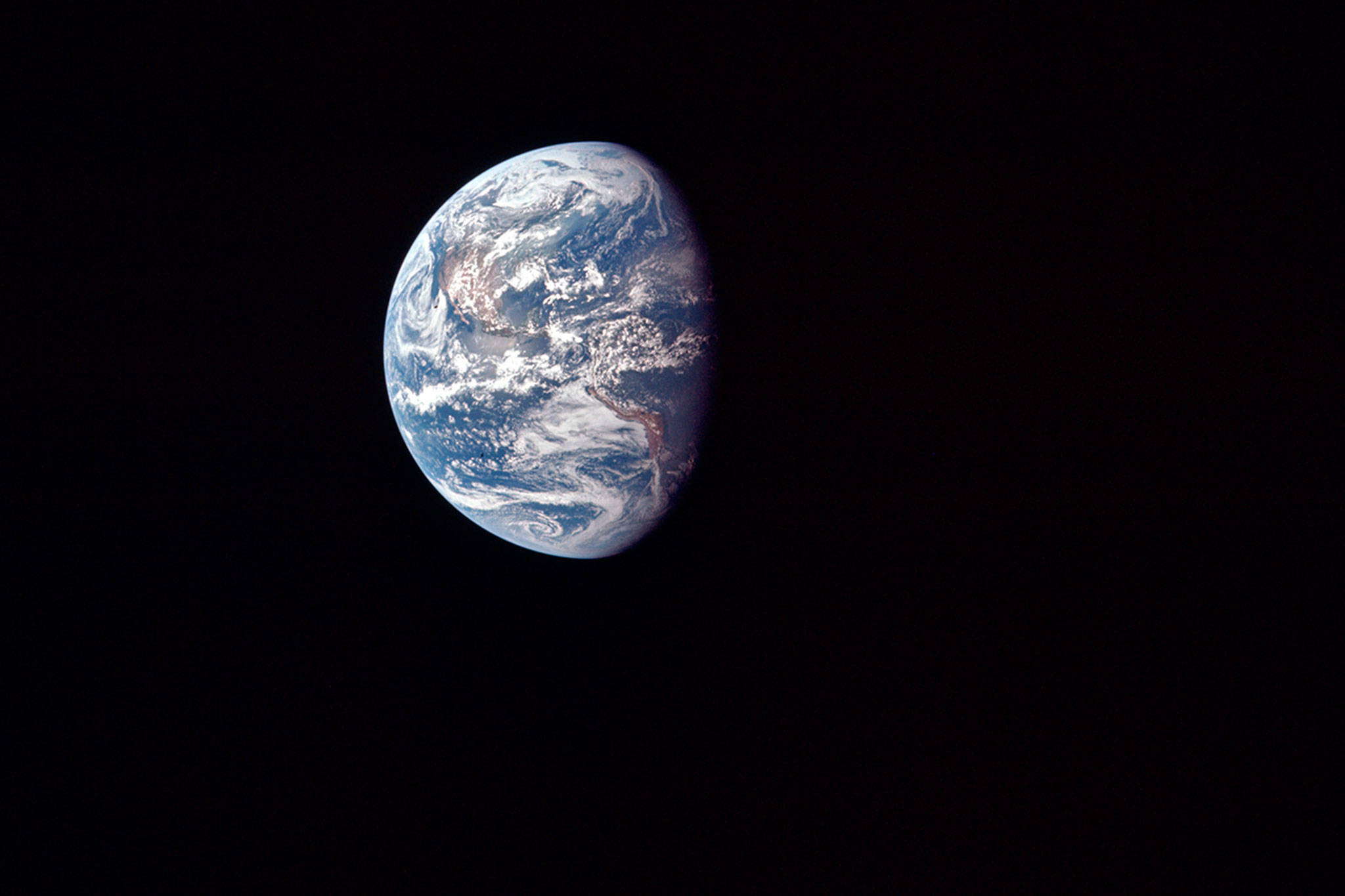By The Herald Editorial Board
“We choose to go to the moon. We choose to go to the moon in this decade and do the other things, not because they are easy, but because they are hard, because that goal will serve to organize and measure the best of our energies and skills, because that challenge is one that we are willing to accept, one we are unwilling to postpone, and one which we intend to win, and the others, too.”
— President John F. Kennedy, Rice University, Houston, Sept. 12, 1962
As we reflect this weekend on the news of July 20, 1969, when astronauts Neil Armstrong and Buzz Aldrin marked the surface of the moon with their footsteps — impressions that fulfilled President Kennedy’s “moon shot” speech — our attention will be fixed on that moment, Armstrong’s small step, but also on the giant leaps that preceded it and those that have followed.
They are there in Kennedy’s speech, in that sentence, which usually is truncated in clips and reports after “because they are hard.”
Consider what follows: “because that goal will serve to organize and measure the best of our energies and skills.”
For a visionary such as Kennedy, the journey before and after was as vital to the interests of Americans as was the destination.
There is little of our daily lives that is not the byproduct of the Apollo missions and the explorations that led up to them and then followed; to name just a few: the exponential development of computers’ power and speed and their miniaturization; the capabilities offered by satellites for scientific study, communications and weather forecasting; and the understanding of our place in the universe afforded by images, such as that taken by Apollo 8 astronaut Bill Anders of the earth rising above the surface of the moon.
Those milestones and advancements will continue as NASA and others work to return to the moon and reach further to place footsteps next to the robot tracks on Mars.
What is most needed now, however, is a commitment to an “earth shot” effort, if not “earth’s last shot.”
It will have to come without a speech, much less support, from President Trump, but the United States and the rest of the world — every individual on the planet — needs to join the race to limit the damage from global warming and prepare for and respond to the effects of climate change.
Remember those NASA satellites? Data from the agency’s Goddard Institute for Space Studies show that 18 of the 19 warmest years have occurred since 2001, with 2016 marking the warmest year on record.
The National Climate Assessment, released in December, combined reports from 13 federal agencies that detailed the impacts — many already arrived — from climate change, including warmer and longer heat waves, more damaging wildfires and more intense storms, flooding and rising seas. Destructive weather events alone, the report found, have cost the nation $400 billion since 2015 and could bring losses of up to $100 billion annually in coming years.
Climate change, coupled with the impacts from population growth such as pollution and loss of habitat, have caused a loss of a fifth of the abundance of plant and animal life over the last century and threaten the extinction of 1 billion of the earth’s 8 billion species in coming decades, according to a United Nations report released in May.
A commitment to reduce the emissions of carbon dioxide and other greenhouse gases can bring a wealth of dividends: improvements in health because of a cleaner environment; the preservation of habitat and wildlife; more advancements in technology, and stronger economies and jobs that are based on those advancements.
The Green New Deal might have served as the focus for the “earth shot,” if not for a botched roll-out of its legislation in Congress that allowed skeptics to mock poorly thought-out talking points by the staff of a certain freshman House member.
But the best provisions of the deal remain, waiting for pledges of public and private investment in renewable energy sources; advances in technology; and a price on carbon that recognizes the costs we’re already paying for emissions.
Kennedy, in his “moon shot” speech, acknowledged that the goal of putting astronauts on the moon would require technology that had yet to be invented and would demand immense investments of capital and effort: “I think that we must pay what needs to be paid,” he said.
Yet he had confidence in America that it would be done.
We need that same confidence — in our abilities, our knowledge and our strength of character — for earth’s shot at survival, a challenge we must be willing to accept, unwilling to postpone and one we intend to win.
Talk to us
> Give us your news tips.
> Send us a letter to the editor.
> More Herald contact information.

























